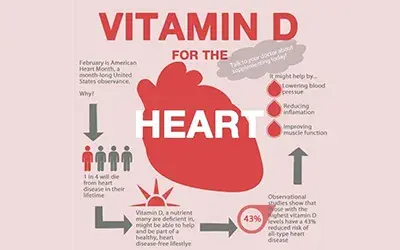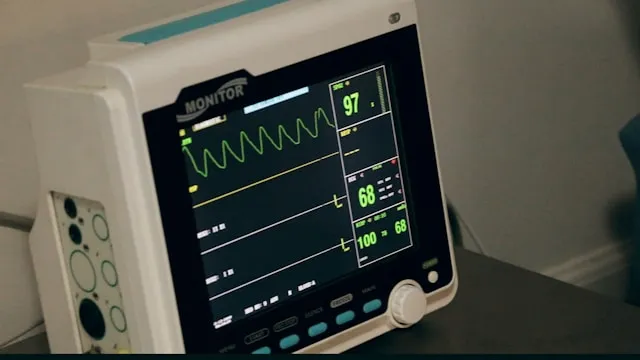Vitamin D is necessary for our overall health. We all know that a deficiency of vitamin D causes many health issues. But, does Vitamin D Deficiency mean a higher risk for cardiovascular disease? Yes, vitamin D and cardiovascular disease are somehow related to each other. In this article, we will explore the link between Vitamin D and Heart Disease.
A deficiency of Vitamin D can make your bones and muscles weak. But recent studies have stated that vitamin D deficiency may also lead to many life-threatening diseases like heart diseases, including coronary artery disease, heart attacks, and strokes.
What is Vitamin D?
Vitamin D is a nutrient found in many food items. It is also known as the Sunshine Vitamin, as Vitamin D is produced inside the skin, in response to the sun's rays. Vitamin D is required to maintain strong bones and a healthy body. It helps the body to absorb calcium from food and other supplements, which is important for your bone and muscle health.
Vitamin D and Heart Disease

The deficiency of vitamin D leads to soft, thin, and brittle bones. Not only bones but vitamin D deficiency can also cause many other diseases. Research stated that people with low vitamin D levels are more likely to have heart diseases, compared to those with high vitamin D levels. A deficiency of Vitamin D and cardiovascular disease may be linked. However, more research is needed to support this statement.
Role of Vitamin D Deficiency in Heart diseases
Vitamin D deficiency is associated with bone and muscle disorders. But many studies show that the lack of vitamin D can predispose the body to many other disorders. It may include high blood pressure, heart failure, and chronic blood vessel inflammation. Vitamin D Deficiency is also responsible for increasing insulin resistance, which increases the risk of diabetes.
According to a review article published in the Journal of the American College of Cardiology, the researchers studied the link between Vitamin D and Heart Disease. It has not been fully elucidated how vitamin D protects individuals from heart diseases. But, they have proposed different mechanisms like negatively regulating renin to lower blood pressure, which improves vascular compliance, decreases parathyroid hormone (PTH) levels, and improves glycemic control.
These researches aim to summarize the epidemiologic and clinical evidence for the protective role of vitamin D in the cardiovascular system. It is said that ischemic heart diseases are inversely related to sun exposure. Hence, the researchers proposed vitamin D as a protective factor.
How Does Vitamin D Reduce The Risk of Heart Health?
We know that Vitamin D is a fat-soluble nutrient. By regulating calcium and phosphate metabolism, it plays an important hormonal role in skeleton health. Currently, vitamin D deficiency is identified as a potential risk factor for many diseases like CVD.
Did you know that Cardiovascular Diseases are the main cause of morbidity and mortality? CVD is the number one cause of death. People at high risk of heart disease need early diagnosis and treatment for their condition.
Many researchers have provided reports that show the link between low 25-hydroxyvitamin D levels and CVD. They also try to elaborate on the possible mechanisms involved in these conditions. The link between vitamin D and heart disease has now been proven. Let's discuss the role of Vitamin D supplements in the treatment of these conditions.
VDRs are found in all the major cardiovascular cell types like arterial wall cells, cardiomyocytes, and immune cells. The enzyme 1-alpha-hydroxylase is also actively expressed in cardiovascular tissues. This enzyme converts vitamin D into the hormonal 1,25-(OH)2D (calcitriol) form. Experimental studies have verified the role of vitamin D in metabolizing the pathways that are essential to cardiovascular function and diseases, including inflammation, thrombosis, and RAS.
Conclusion
Vitamin D is an essential nutrient that keeps your bones and muscles healthy and strong. Emerging studies show that vitamin D is independently linked with heart diseases. However, future studies are required for a better understanding of the role of Vitamin D supplements in the treatment of heart diseases.
Related Read: Vitamin D Deficiency: Symptoms, Causes, and Treatment Call +91-8010-994-994 and talk to Credi Medical Experts for FREE. Get assistance in the choosing right Cardiologists in India
Reviewed by







